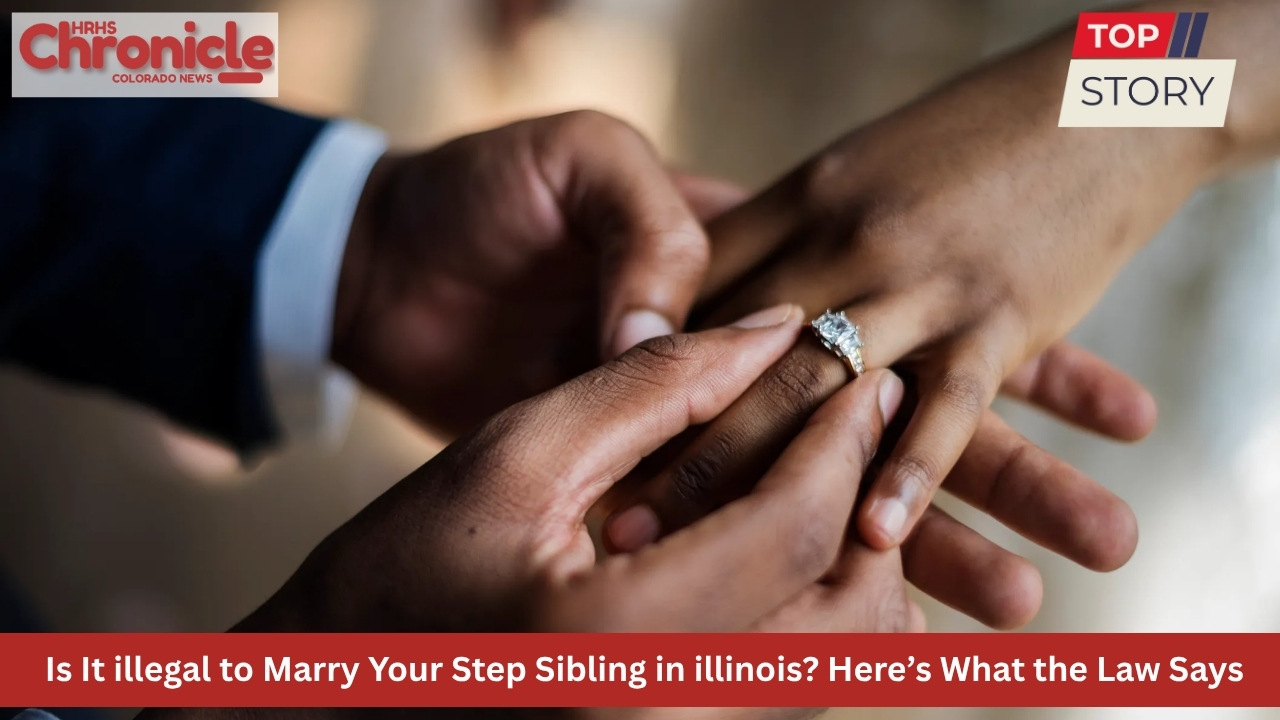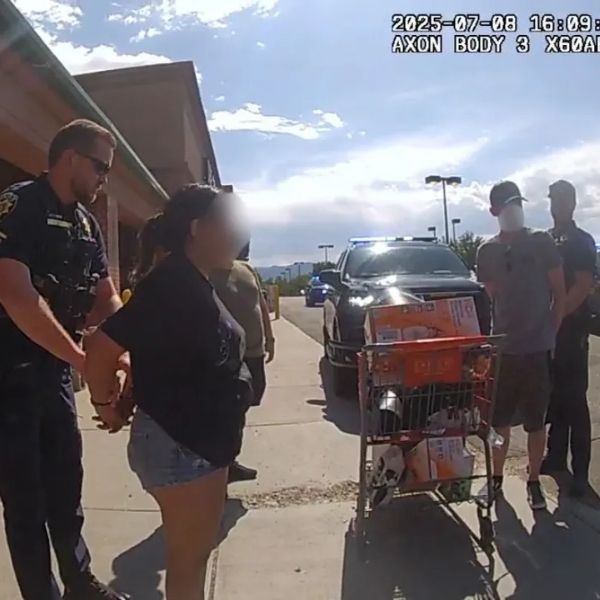With the evolving structures of modern families, questions about relationships with step relatives, especially regarding marriage, are increasingly common in Illinois cities such as Chicago, Peoria, Springfield, Rockford, and Aurora. Many individuals wonder if it is illegal to marry a step sibling in Illinois, given the complexities of blended families. To answer this, it’s essential to understand both the legal definitions and the broader societal perspectives relevant to the Prairie State.
What Is a Step Sibling?
A step sibling is someone who becomes your sibling through the marriage of one of your parents to their parent. Importantly, there is no blood relation. For example, if your father marries a woman who already has a son or daughter from a previous relationship, you and that person become step siblings. In Illinois, the definition of a step sibling relies strictly on the marital bond between parents rather than biology or adoption. This is significant because the law treats blood relations and relations by marriage differently.
Illinois’ Marriage Statutes: Who Can, and Cannot, Marry?
Illinois marriage statutes specifically outline which family connections prohibit marriage. According to state law, marriage is not allowed between certain close relatives:
-
Whole, half, or adopted siblings
-
Ancestors and descendants (parents and children, grandparents and grandchildren)
-
Uncles, aunts, nieces, and nephews (on both maternal and paternal sides)
-
First cousins (except under limited circumstances, such as both being over age 50 or one being sterile)
Illinois law is very clear about these prohibitions because of concerns about genetic disorders resulting from consanguinity, or blood relationships. The law seeks to prevent marriages that could lead to medical or ethical concerns linked to close genetic relations.
Are Step Siblings on This List?
Crucially, step siblings do not appear in the statutory list of prohibited marriages. Because the connection between step siblings is established through marriage rather than by blood or adoption, Illinois law does not consider this relationship a barrier to marriage.
Therefore, in Illinois, it is not illegal for step siblings to marry each other. The law focuses on blood ties and, to a lesser extent, adoptive relationships—step relationships, established only by the marriage of parents, are not covered under the prohibition of incestuous marriages.
Legal Pathways for Step Siblings to Marry
For adults who wish to marry their step sibling in Illinois, the process follows that of any other couple: both parties must be single, of legal marrying age (usually 18, or 16–17 with parental consent), and not otherwise prohibited from marrying by virtue of blood or adoption. The marriage license application and ceremony must be performed in accordance with local regulations.
The scenario is the same whether the couple resides in Chicago, Evanston, Naperville, or any small town across Illinois. Step siblings are legally permitted to wed, provided all other standard conditions are met.
Marriage License Process in Illinois
To get married in Illinois, including cities such as Joliet, Champaign, or Waukegan, couples must apply for a marriage license at their county clerk’s office. They’ll need to provide identification, basic personal information, and affirm they are not closely related as defined by state law. Since step siblings are not included in the legal prohibitions, their application would be treated like any other.
Why Are Consanguinity and Adoption Treated Differently?
Illinois, like most states, prohibits marriage between people with close biological or adoptive connections because of risks such as genetic disorders in children, power dynamics, and societal concerns. Since step siblings do not share genetic material—and are only related due to their parents’ marriage—these concerns do not apply.
Common Myths about Step Sibling Marriage
Many myths persist regarding step sibling marriages, especially in communities with strong family traditions or religious backgrounds, such as some communities in southern Illinois. Social discomfort and cultural taboos may suggest such marriages are off-limits; however, the law strictly distinguishes between tradition and statute.
-
Myth: Step sibling marriage is considered incest under Illinois law.
-
Fact: Incest statutes only apply to blood and sometimes adoptive relations, not to step relations.
-
-
Myth: You cannot marry a step sibling if you were raised together.
-
Fact: The law does not take into account whether or not the step siblings grew up together—only the presence or absence of a blood or adoptive relationship matters.
-
-
Myth: Step sibling marriages are costlier or require extra legal steps in Illinois.
-
Fact: The process is identical to that of unrelated couples.
-
Blended Families in Illinois Cities
Illinois, especially urban centers like Chicago and its suburbs, is home to a large number of blended families. The U.S. Census Bureau has noted that the proportion of stepfamilies is on the rise. In some Illinois school districts, particularly in Cook, Lake, and DuPage counties, up to one-third of school-aged children live in households with half-, step-, or adopted siblings.
With such prevalence, the question of marriage between step siblings is more practical than theoretical. Yet, actual step sibling marriages remain rare, primarily due to social, rather than legal, factors.
How Do Illinois Courts View Step Sibling Relationships?
Illinois courts primarily focus on the letter of the law, rather than the circumstances of upbringing or the perceived “closeness” of relationships developed in childhood. Cases that have involved challenges to marriages between step siblings have generally upheld the right to marry, provided all statutory requirements are met.
Wider Social Implications
While Illinois law does not prohibit step sibling marriage, individuals considering such a union may still encounter personal, familial, or cultural resistance. Some families or communities may view such marriages as inappropriate, especially if the step siblings lived together or were raised in the same household for many years. However, these social obstacles are distinct from legal ones.
Why People Might Object to Step Sibling Marriages
-
Familial discomfort: For some families, the idea of step siblings marrying can challenge traditional concepts of kinship and family roles.
-
Societal taboos: Many cultures have strong feelings regarding the sanctity of the family structure and the “brother/sister” bond, even when not related by blood.
-
Religious beliefs: Certain faiths may discourage or frown upon such unions, even where civil law permits them.
Nevertheless, none of these social factors affect the legality of the marriage under Illinois law.
Different Cities, Same Law
Illinois’ marriage laws are uniform statewide. Whether you live in bustling Chicago, historic Springfield, industrious Peoria, or a small rural town, the rules are the same: step siblings are legally permitted to marry. There are no special regulations, ordinances, or county-level requirements that would override state statutes on this subject.
What About Other States?
It’s important to note that marriage laws vary greatly across the United States. Some states might have more restrictive laws regarding step sibling relationships. However, in Illinois, the absence of a blood relationship removes legal obstacles. If a couple marries as step siblings in Illinois and then moves to a different state, it’s wise to check that state’s recognition laws, especially if residency or legal matters arise later.
What If Step Siblings Were Once Legally Adopted as Siblings?
A significant legal distinction arises if one step sibling was formally adopted by the other’s parent. In this case, they become legal siblings, and the state’s marriage prohibitions on siblings—biological or adoptive—would apply. Therefore, if you are step siblings only through marriage, you are permitted to wed. If you are step siblings and legally adopted as brother and sister, you may not.
Visitation, Custody, and Other Legal Concerns
Once step siblings marry, they form a legally recognized marital unit with all associated rights and responsibilities as any other married couple. In cities such as Aurora or Elgin, married step siblings may face some increased scrutiny in social settings, but under the law, no distinction is made.
If step siblings in Illinois share children—biologically or through adoption—parental rights, visitation, and custody laws apply just as they would for any other couple. Illinois has robust legal standards to ensure the best interests of any children involved.
Looking at the Numbers
Illinois is home to more than 12.5 million people, with Chicago being the third largest city in the United States. Blended families are estimated to make up over 16% of all households in major urban centers throughout the state. With so many blended families, legal clarity on issues like marriage between step siblings helps prevent confusion and ensures that the law evolves alongside shifting social structures.
Ethical and Emotional Factors
While legal permission is clear, individuals and families face emotional and ethical considerations. Choosing to marry a step sibling is deeply personal and may require open conversations with family members, counseling, and honest self-reflection. Couples can benefit from discussing how they plan to handle societal perceptions, especially if they were raised together for long periods.
Key Takeaways for Illinois Residents
-
It is legal to marry a step sibling in Illinois, provided there is no biological or adoptive relation.
-
The process for marriage is exactly the same as for any other couple.
-
Social acceptance can be variable, but legal acceptance is codified in state law.
-
If adoption occurred, and you are legally siblings, marriage is not permitted.
-
Illinois law is consistent statewide, with no variations between cities or counties.
Conclusion
In Illinois, the law is unequivocal: marrying your step sibling is legal, as long as you do not share a biological or adoptive relationship. This holds true in every city, from Chicago’s soaring skyline to the quiet farmlands of southern Illinois. While families and communities may have their own beliefs about such unions, the state’s statutes are clear. Blended families are an increasingly significant part of Illinois’s social fabric, and the law reflects an understanding that not all familial bonds are barriers to love and marriage.
For those curious about step sibling marriage in Illinois, the best approach is to consult your county clerk for marriage license requirements and, if needed, seek guidance from a family law attorney to navigate any complicated family circumstances. Nevertheless, Illinois’s laws offer clear guidance—your relationship’s legitimacy is established by the absence of a blood or adoptive tie, not by the feelings or opinions of others. In the end, the law recognizes your right to marry the one you love, even if that person is a step sibling.

Mrs. Odice has been a teacher here for 9 years. She likes yoga and spends most of her time with her 3 kids. She also grew up going to Douglas County schools and is Canadian.















Leave a Reply